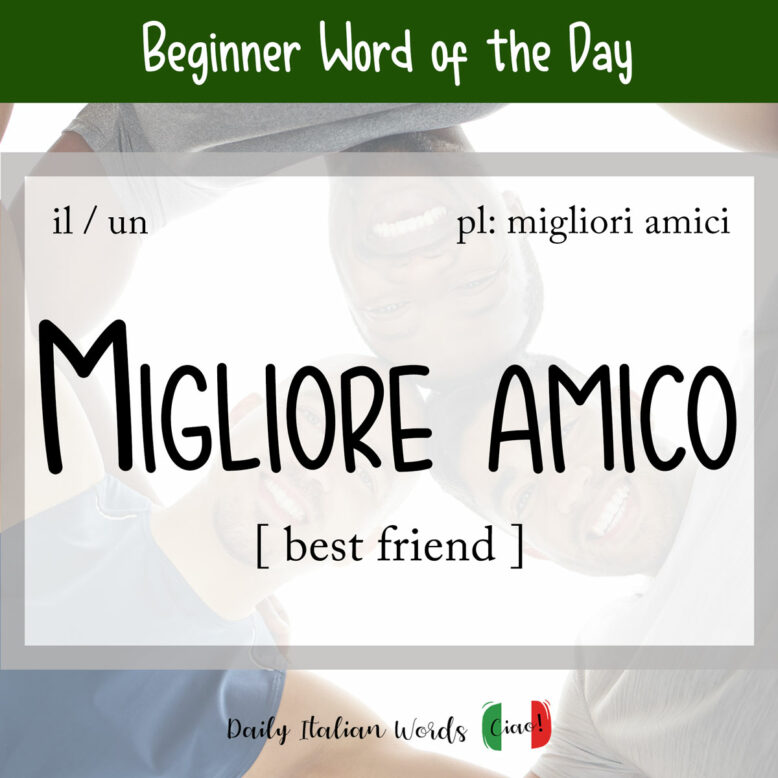They say that sometimes, being with your best friend is all the therapy you need when the world gets you down, and I couldn’t agree more!
The word for best friend in Italian is migliore amico in reference to a male or migliore amica for a female. The plural forms are migliori amici and migliori amiche respectively.

My best friend with the possessive pronoun in front translates as il mio migliore amico (male) or la mia migliore amica (female).
Tu sei sempre stato il mio migliore amico.
You’ve always been my best friend.

Be aware that if you are a female talking about a male, you would still say il mio migliore amico, not *la mia migliore amico. This is because il mio modifies amico, not the female speaker. The same applies to a male talking about a female.
Did you know that…?
The adjective migliore can be abbreviated to the apocope form miglior in front of singular nouns, so you may hear, for example, miglior amico instead of migliore amico.
In Italian, migliore translates not only as best but also better. When better is the meaning, it must come after amico / amica.
Non posso immaginare un’amica migliore di te.
I can’t imagine a better friend than you.
Gianni sarebbe stato un amico migliore per Luigi.
Gianni would have been a better friend for Luigi.

It is possible for migliore to be placed after amico / amica when it is followed by a relative clause such as che io abbia (that I have) or che ci sia (that there is), although it more commonly appears before.
Lui è il miglior amico che io abbia mai avuto.
Lui è l’amico migliore che io abbia mai avuto.
He is the best friend that I have ever had.
There are many other ways of talking about your closest friends in Italian such as:
- amico / amica del cuore = close friend (lit: friend of the heart)
- caro amico / cara amica = dear friend
- amico intimo / amica intima = close friend (lit: intimate friend)
- buon amico / buon’amica = good friend
- grande amico/a = great friend
- amico fidato / amica fidata = trusted friend
Heather Broster is a graduate with honours in linguistics from the University of Western Ontario. She is an aspiring polyglot, proficient in English and Italian, as well as Japanese, Welsh, and French to varying degrees of fluency. Originally from Toronto, Heather has resided in various countries, notably Italy for a period of six years. Her primary focus lies in the fields of language acquisition, education, and bilingual instruction.


